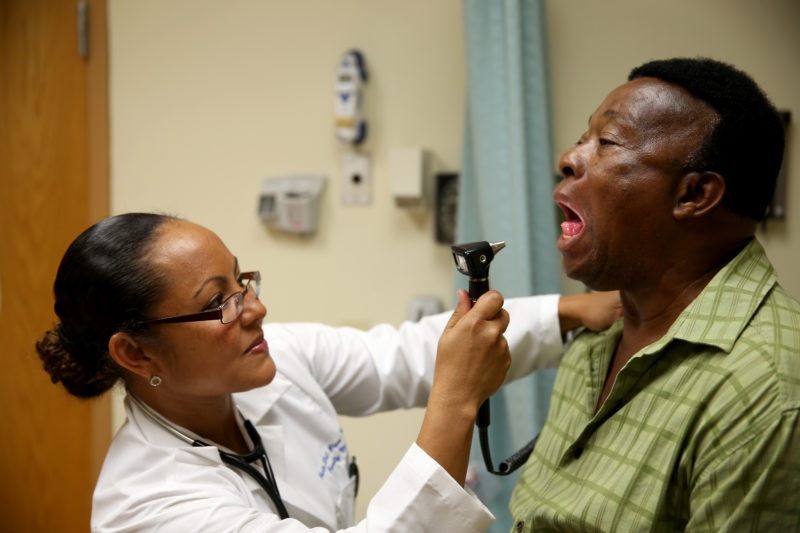US inflation jumps in July pushed by higher housing, energy
Rising US medical costs amid higher insurance prices helped push US consumer inflation higher (JOE RAEDLE)
Washington (AFP) – Rising energy, housing and medical costs pushed US consumer inflation higher in July, which showed the trade war having some impact, according to government data released Friday.
The increase was another sign the world’s biggest economy may finally be starting to see inflation in the 11th year of expansion despite slowing growth — something the Federal Reserve has been waiting to see.
And while President Donald Trump insists punitive tariffs are not hurting American consumers, economists warn the trade impact is showing up in the data.
The Consumer Price Index jumped 0.3 percent compared to June, the Labor Department reported, and accelerated to show a 1.8 percent increase for the 12 months ended in July.
Energy costs surged 1.3 percent last month and shelter costs posted another 0.3 percent increase as rents remain under pressure amid tight supply of housing.
“The past four months have seen the three biggest monthly increases in primary rents in the past 12 years; this is not just noise,” said Ian Shepherdson of Pantheon Macroeconomics said of the rising housing costs.
Food prices were flat, but medical care services rose 0.5 percent, including a 1.7 percent jump in health insurance, according to the report. That category has increased 3.3 percent since a year ago, while insurance surged just under 16 percent, the largest increase ever recorded.
Excluding the volatile food and energy components, the closely-watched core CPI measure again rose 0.3 percent in July compared to the prior month, bigger than economists had forecast, making it 2.2 percent higher than July 2018.
Used car prices rose 0.9 percent after spiking in June, and are up 1.5 percent for the year, according to the data.
“Even without further tariffs, we expect core CPI inflation to hit 2.5% by the end of this year, with unfavorable base effects then likely to push it close to 3% by next spring,” Shepherdson said.
Used car prices rose 0.9 percent after spiking in June, and are up 1.5 percent for the year, according to the data.
The Federal Reserve cut the benchmark interest rate at the end of July amid concerns about slowing growth, hit by President Donald Trump’s trade war, and sluggish inflation that has remained stubbornly below the central bank’s two percent target.
Disclaimer: Validity of the above story is for 7 Days from original date of publishing. Source: AFP.


